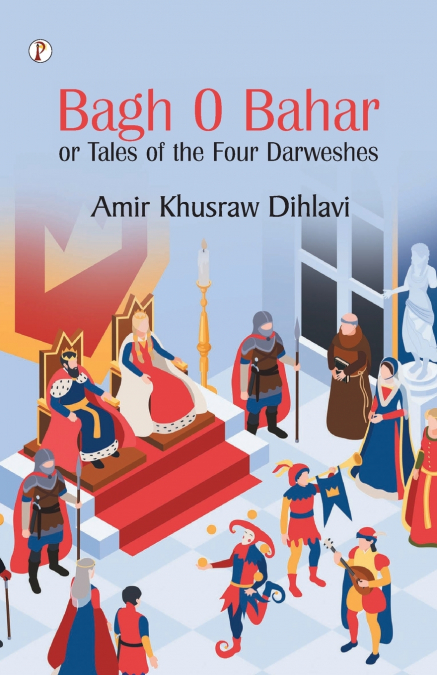
 Librería Perelló (Valencia)
Librería Perelló (Valencia)
 Librería Aciertas (Toledo)
Librería Aciertas (Toledo)
 El AlmaZen del Alquimista (Sevilla)
El AlmaZen del Alquimista (Sevilla)
 Librería Elías (Asturias)
Librería Elías (Asturias)
 Librería Kolima (Madrid)
Librería Kolima (Madrid)
 Donde los libros
Donde los libros
 Librería Proteo (Málaga)
Librería Proteo (Málaga)
'Bagh-o-Bahar,' also known as 'Tales of the Four Darweshes,' is a classic Persian and Indian literary work written by the renowned poet and Sufi musician Amir Khusraw Dehlavi. This collection of tales is a masterpiece of Indo-Persian literature and has been cherished for centuries. 'Bagh-o-Bahar' is a frame story, which means it consists of several interconnected tales nested within a larger narrative. The central story revolves around the adventures and misadventures of four dervishes, or darweshes, who engage in a series of captivating and morally instructive tales. Amir Khusraw’s storytelling is rich in Persian and Sufi influences, and his tales are characterized by their intricate plots, vivid characters, and moral lessons. Through the journeys and experiences of the darweshes, Khusraw explores themes such as fate, destiny, love, wisdom, and the human condition. The collection is not only entertaining but also offers valuable insights into the cultural and philosophical milieu of the time. It reflects the Sufi tradition’s emphasis on spiritual enlightenment and moral guidance through storytelling. 'Bagh-o-Bahar' continues to be celebrated for its literary and philosophical significance and is considered a classic work of Indo-Persian literature. It has been translated into various languages and remains a timeless treasure for those interested in exploring the rich tapestry of Persian and Indian literature.